S Ashwin Hebbar
DeepPolar: Inventing Nonlinear Large-Kernel Polar Codes via Deep Learning
Feb 14, 2024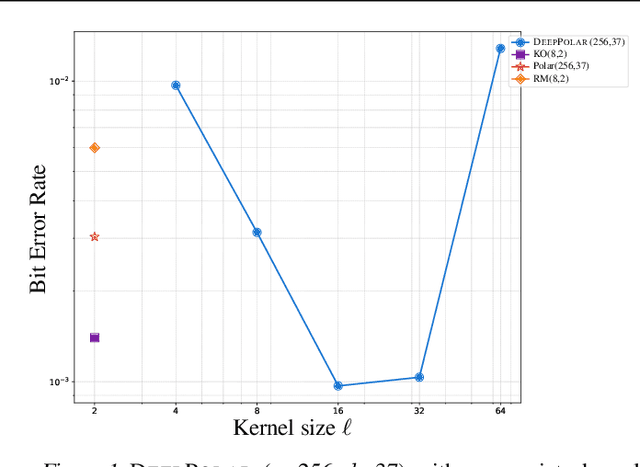
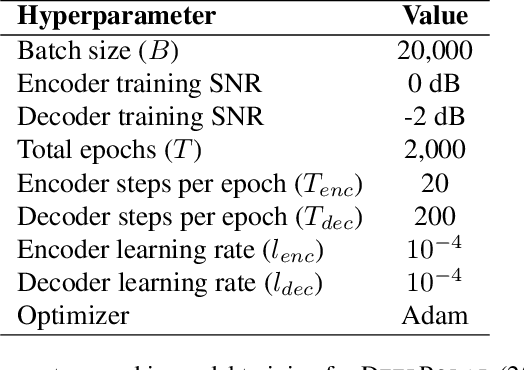

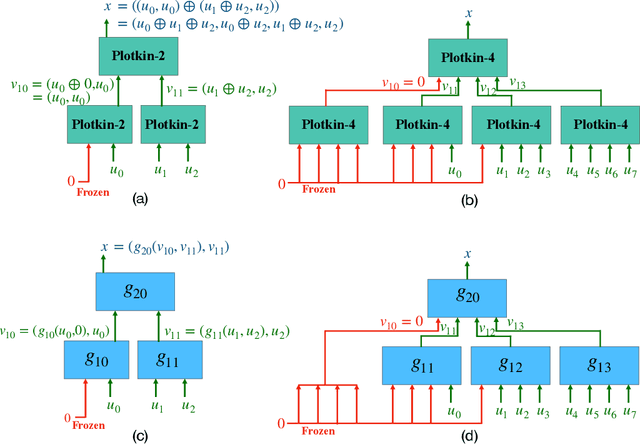
Abstract:Polar codes, developed on the foundation of Arikan's polarization kernel, represent a breakthrough in coding theory and have emerged as the state-of-the-art error-correction-code in short-to-medium block length regimes. Importantly, recent research has indicated that the reliability of polar codes can be further enhanced by substituting Arikan's kernel with a larger one, leading to a faster polarization. However, for short-to-medium block length regimes, the development of polar codes that effectively employ large kernel sizes has not yet been realized. In this paper, we explore a novel, non-linear generalization of polar codes with an expanded kernel size, which we call DeepPolar codes. Our results show that DeepPolar codes effectively utilize the benefits of larger kernel size, resulting in enhanced reliability compared to both the existing neural codes and conventional polar codes.
Nested Construction of Polar Codes via Transformers
Jan 30, 2024Abstract:Tailoring polar code construction for decoding algorithms beyond successive cancellation has remained a topic of significant interest in the field. However, despite the inherent nested structure of polar codes, the use of sequence models in polar code construction is understudied. In this work, we propose using a sequence modeling framework to iteratively construct a polar code for any given length and rate under various channel conditions. Simulations show that polar codes designed via sequential modeling using transformers outperform both 5G-NR sequence and Density Evolution based approaches for both AWGN and Rayleigh fading channels.
CRISP: Curriculum based Sequential Neural Decoders for Polar Code Family
Oct 01, 2022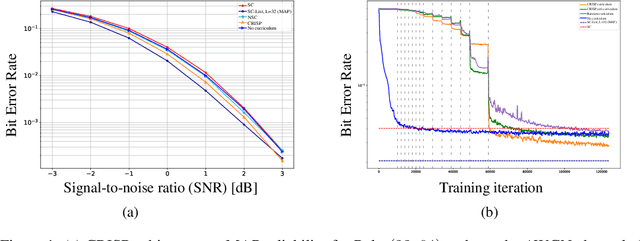



Abstract:Polar codes are widely used state-of-the-art codes for reliable communication that have recently been included in the 5th generation wireless standards (5G). However, there remains room for the design of polar decoders that are both efficient and reliable in the short blocklength regime. Motivated by recent successes of data-driven channel decoders, we introduce a novel $\textbf{C}$ur$\textbf{RI}$culum based $\textbf{S}$equential neural decoder for $\textbf{P}$olar codes (CRISP). We design a principled curriculum, guided by information-theoretic insights, to train CRISP and show that it outperforms the successive-cancellation (SC) decoder and attains near-optimal reliability performance on the Polar(16,32) and Polar(22, 64) codes. The choice of the proposed curriculum is critical in achieving the accuracy gains of CRISP, as we show by comparing against other curricula. More notably, CRISP can be readily extended to Polarization-Adjusted-Convolutional (PAC) codes, where existing SC decoders are significantly less reliable. To the best of our knowledge, CRISP constructs the first data-driven decoder for PAC codes and attains near-optimal performance on the PAC(16, 32) code.
TinyTurbo: Efficient Turbo Decoders on Edge
Sep 30, 2022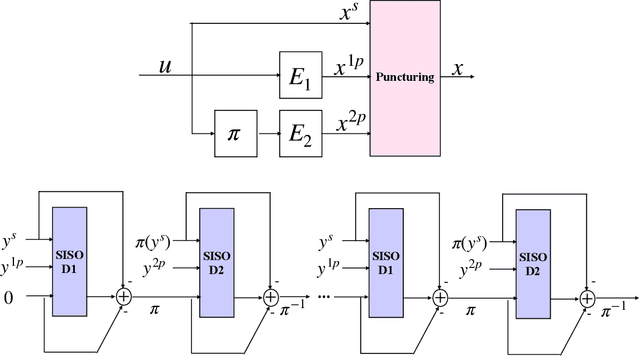



Abstract:In this paper, we introduce a neural-augmented decoder for Turbo codes called TINYTURBO . TINYTURBO has complexity comparable to the classical max-log-MAP algorithm but has much better reliability than the max-log-MAP baseline and performs close to the MAP algorithm. We show that TINYTURBO exhibits strong robustness on a variety of practical channels of interest, such as EPA and EVA channels, which are included in the LTE standards. We also show that TINYTURBO strongly generalizes across different rate, blocklengths, and trellises. We verify the reliability and efficiency of TINYTURBO via over-the-air experiments.
* 10 pages, 6 figures. Published at the 2022 IEEE International Symposium on Information Theory (ISIT)
 Add to Chrome
Add to Chrome Add to Firefox
Add to Firefox Add to Edge
Add to Edge